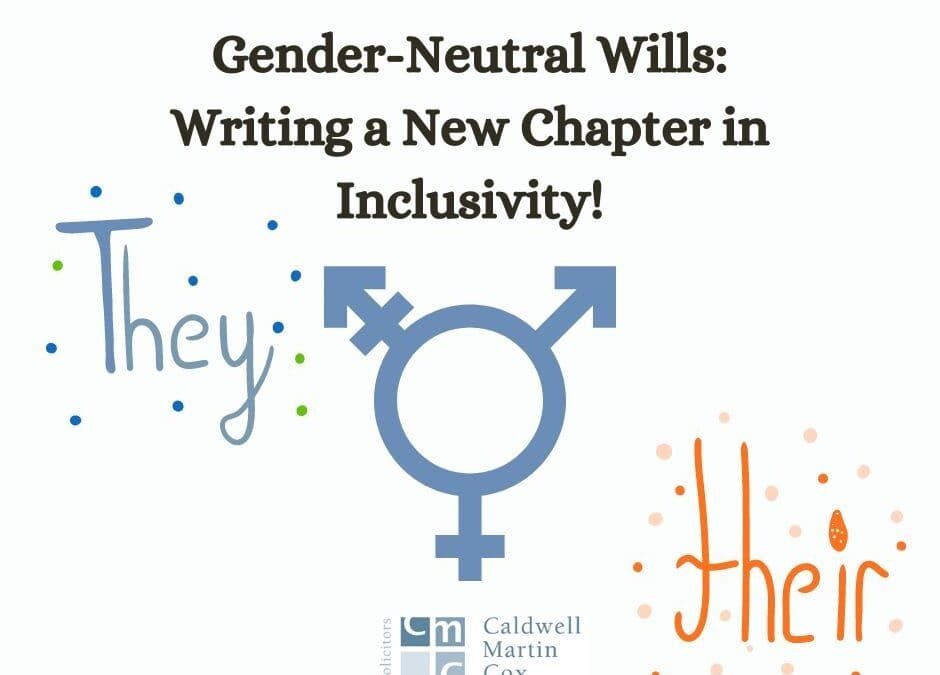In recent years, there has been a shift in how people approach language in legal documents, such as their Wills. We’ve noticed that more individuals choose to use gender-neutral pronouns like “they” or “their” to refer to their executors and beneficiaries.
This shift in language is not only driven by a desire to recognise and respect the diverse range of gender identities within families and communities, but also has significant legal implications. From a legal perspective, gender-neutral language helps to future-proof wills against potential disputes or misunderstandings. Using terms such as child, grandchild or even specific names can ensure that your wishes are clearly understood and upheld, regardless of how beneficiaries identify themselves. If a beneficiary changes their name in the future, a change of name certificate, listing their previous name can be supplied to the Court to evidence that they are the same person as the intended recipient of the gift.
Whilst New South Wales succession law does not specifically require the use of gender-neutral language in wills, New South Wales was the first jurisdiction to adopt gender-neutral language in legislation in 1983. Since then, all legislation in New South Wales has more accurately reflected a broader society. The Law Society of New South Wales has also encouraged the shift in language in order to allow for the longevity of estate planning documents and minimise the future burden on Executors to clarify your intentions for the distribution of your estate to the Court. Whilst the Supreme Court increasingly recognises the importance of respecting the diverse identities of estate beneficiaries, Executors must be able to evidence how this corresponds with your intentions.
Additionally, lawyers and their clients alike are increasingly recognising the importance of language in reflecting and promoting equality. Embracing gender-neutral language reflects broader societal changes and promotes inclusivity and respect for diversity. Furthermore, updating your Will to reflect a beneficiary’s change of gender identity can also send a powerful message of recognition, affirming your loved one’s chosen gender identity.
The move towards gender-neutral language in wills and other legal documents is a significant step toward promoting equality and respect for diverse identities. By choosing more inclusive language, individuals are not only honouring their loved ones’ identities but also contributing to a more equitable and inclusive legal landscape.

